HARRINGTONINE
- CAS NO.:26833-85-2
- Empirical Formula: C28H37NO9
- Molecular Weight: 531.6
- MDL number: MFCD28978177
- SAFETY DATA SHEET (SDS)
- Update Date: 2025-12-16 16:15:04
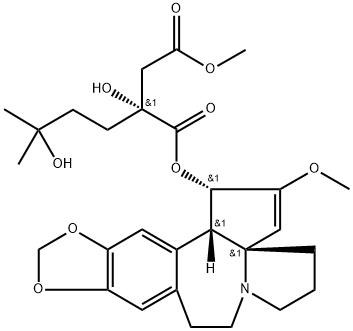
What is HARRINGTONINE?
Description
The full structure of harringtonine has now been established from a study of the hydrolysis products of this base.
Description
Harringtonine is a natural alkaloid that inhibits protein synthesis at low micromolar concentrations. It immobilizes ribosomes immediately after the initiation of translation. While harringtonine has drawn some interest in mitigating cancer, its homolog homoharrington is more effective, particularly for chronic myelogenous leukemia. The ability of harringtonine to immobilize initiating ribosomes can be used to capture ribosome-
Chemical properties
White Solid
The Uses of HARRINGTONINE
A natural product with significant antitumor activities.
The Uses of HARRINGTONINE
specific anti-leukemia drug
What are the applications of Application
Harringtonin is a natural alkaloid compound with antitumor properties, and an inhibitor of translation.
Definition
ChEBI: Harringtonine is an alkaloid.
References
Mikolajczak, Powell, Smith, Tetrahedron, 28, 1995 (1972)
Kelly, McKenna, Christenson, Tetrahedron Lett., 35m (1973)
Properties of HARRINGTONINE
| Melting point: | 73~75℃ |
| Boiling point: | 679.4±55.0 °C(Predicted) |
| Density | 1.35±0.1 g/cm3(Predicted) |
| storage temp. | 2-8°C |
| solubility | DMF: 25 mg/ml; DMSO: 25 mg/ml; Ethanol: 25 mg/ml; Ethanol:PBS(pH 7.2) (1:1): 0.5 mg/ml |
| form | A crystalline solid |
| pka | 11.62±0.29(Predicted) |
| color | White to light yellow |
Safety information for HARRINGTONINE
Computed Descriptors for HARRINGTONINE
HARRINGTONINE manufacturer
New Products
4,4-Difluoropiperidine hydrochloride tert-butyl 9-methoxy-3-azaspiro[5.5]undecane-3-carboxylate Indole Methyl Resin N-Isopropylurea N,N-Dicyclohexylcarbodiimide(DCC) MELDRUMS ACID 5-METHYLISOXAZOLE-4-CARBOXYLIC ACID Magnessium Bis glycinate Zinc ascorbate 1-bromo-2-butyne 2-acetamidophenol 9(10H)-anthracenone Erythrosin B, 4-Piperidinopiperidine 2-((4-morpholinophenylamino) (methylthio) methylene) malononitrile 2,4-dihydroxybenzaldehyde 3-(4-morpholinophenylamino)-5-amino-1H-pyrazole-4-carbonitrile Methyl 2-methylquinoline-6-carboxylate 2,6-dichloro-4-nitropyridine 4-Bromo-2-chlorobenzonitrile 2-(benzylamino)acetic acid hydrochloride 4-(tert-Butoxycarbonylamino)but- 2-ynoic acid 3,4-dihydro-2H-benzo[b][1,4]dioxepine 1-Phenyl-1-cycloprppanecarboxylicacidRelated products of tetrahydrofuran
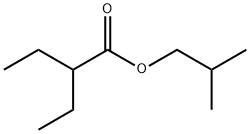

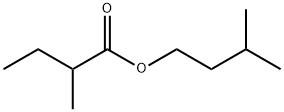
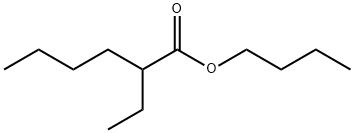
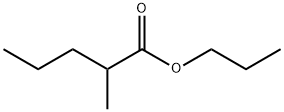


![3-BENZO[1,3]DIOXOL-5-YL-PROPAN-1-OL](https://img.chemicalbook.in/CAS/GIF/7031-03-0.gif)
You may like
-
 3-(4-amino-1-oxoisoindolin-2-yl)-1-methylpiperidine-2,6-dione 98%View Details
3-(4-amino-1-oxoisoindolin-2-yl)-1-methylpiperidine-2,6-dione 98%View Details -
 1-methylindoline-2,3-dione 98%View Details
1-methylindoline-2,3-dione 98%View Details
2058-74-4 -
 614-19-7 98%View Details
614-19-7 98%View Details
614-19-7 -
 3112-85-4 Methyl phenyl sulfone 98%View Details
3112-85-4 Methyl phenyl sulfone 98%View Details
3112-85-4 -
 20677-73-0 (2,2-diethoxyethyl)methylamine 98%View Details
20677-73-0 (2,2-diethoxyethyl)methylamine 98%View Details
20677-73-0 -
 3-(4-(hydroxyamino)-1-oxoisoindolin-2-yl)piperidine-2,6-dione 98%View Details
3-(4-(hydroxyamino)-1-oxoisoindolin-2-yl)piperidine-2,6-dione 98%View Details -
 57381-49-4 2-bromo-4-chlorobenzonitrile 98%View Details
57381-49-4 2-bromo-4-chlorobenzonitrile 98%View Details
57381-49-4 -
 4,6-dichloropyrimidine-5-carbaldehyde 98%View Details
4,6-dichloropyrimidine-5-carbaldehyde 98%View Details
5305-40-8
